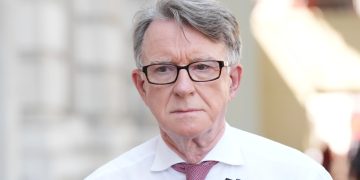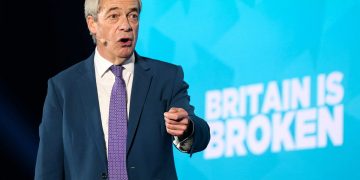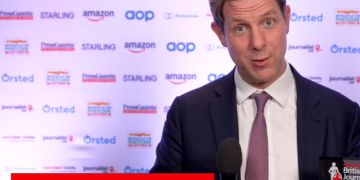EASTER Sunday saw small boat arrivals for the year surge past 5,000 – reaching the damning milestone in record time.
A bumper 349 people crossed the Channel in seven dinghies on Saturday to take official Home Office figures to 4,993.

More than 5,000 small boat migrants have crossed the Channel this year[/caption]
That number is expected to jump after dozens more illegal migrants were spotted making the perilous journey from France despite bad weather.
It piles more pressure on Rishi Sunak as critics last night claimed his pledge to stop the boats was “in tatters”.
Last year 5,000 migrants had not crossed the Channel until April 17, and April 13 the year before.
Overall arrivals for 2024 are tracking at more than a third higher than last year when ministers made progress curbing the numbers.
The PM is bringing his Rwanda plan back to Parliament after Easter and will hope to get flights off within weeks.
He has previously promised to begin deportations to Kigali by the end of spring.
Government officials fear the smuggling gangs in Calais are becoming more ruthless and squeezing more migrants into boats – with around 50 per craft on Saturday.
In 2021 when the Channel crisis escalated, the average number per boat was just 18.
Labour last night accused the Tories of “complacency” adding: “Their pledge to stop the boats has been left in tatters.”
Shadow immigration minister Stephen Kinnock said: “We can also see from these figures that there is a major tragedy waiting to happen in the Channel.
“Poor-quality, over-crowded dinghies are putting to sea and getting into trouble early in their journeys, while the smuggling gangs responsible are left to count their profits.”
Illegal Migration Minister Michael Tomlinson said: “While Labour continue to snipe from the sidelines at our plan to tackle illegal migration, it is clear that they have no plan at all.
“The numbers of illegal migrants would only go up under Labour who are determined to scrap a working deterrent in the Rwanda plan.”
WHAT IS THE RWANDA IMMIGRATION PLAN?
What is the Rwanda plan?
Under the plan, anyone who arrives in Britain illegally will be deported to Rwanda, a country in eastern Africa.
The government believes the threat of being removed to Rwanda will deter migrants from making the dangerous Channel crossing in small boats.
Once in Rwanda, their asylum claims will be processed but there is no route back to the UK, save for some exceptional circumstances such as individual safety concerns. Britain will pay for migrants to start a new life in Rwanda.
What’s the hold up?
First announced by Boris Johnson in 2022, the scheme has been bogged down by relentless legal challenges.
The first flight was due to take off in summer 2022, but was blocked on the runway at the last minute by a European Court order.
Since then the legality of the plan has been contested in the courts, culminating in a Supreme Court judgement in November last year which said Rwanda was unsafe for asylum seekers.
What is Sunak doing?
To salvage the Rwanda plan from the Supreme Court’s scathing ruling, Rishi Sunak announced a two-pronged workaround.
First, he would sign a new treaty with Rwanda to beef up protections for asylum seekers that will be enshrined in law.
Second, he would introduce new legislation that would declare Rwanda a safe country.
It would mean courts, police and officials would have to treat it as safe unless there is a risk of individual and irreparable harm.
How long will that take?
The legislation has cleared the Commons but is now being held up in the House of Lords.
Rishi Sunak does not have a majority in the Lords, and peers are far more hostile to the plan.
They will likely send it back to the Commons with amendments watering down the scheme.
Such changes would be unconscionable to MPs who would strip out the measures and send it back.
This “ping-pong” will continue until either side – usually the unelected Lords – gives in and the Bill passes.
When will flights take off?
Mr Sunak wants to get the first flights sent to Rwanda by the spring.
But potential hurdles include more court battles launched by individual migrants or the European Court of Human Rights.
Mr Sunak has vowed to ignore any more orders by Strasbourg judges to ground planes, although individual appeals in domestic courts could prove tricky.
Sir Keir Starmer has said he will scrap the scheme if he is elected PM, even if it is working.





























